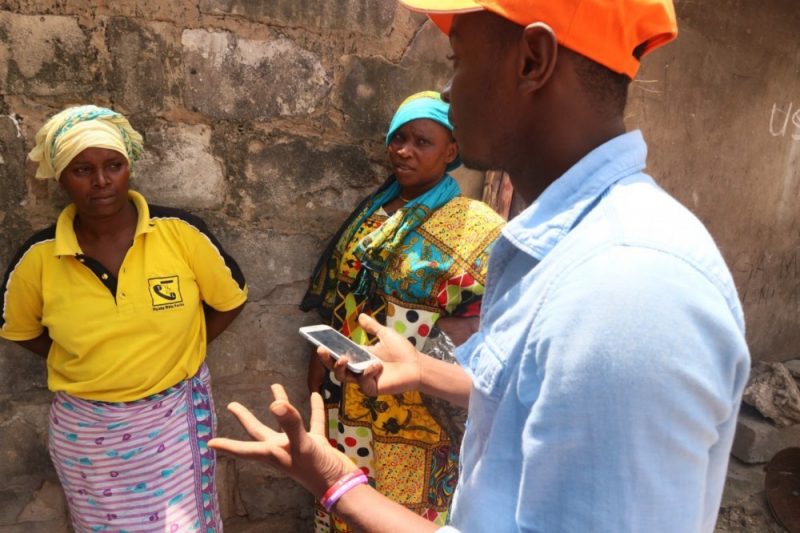
Sejen, a startup funded by DCLI, launched a data science club in Mamie Fetai High School in Cote d’Ivoire, where just about 1 in 3 children—and only 1 in 5 girls—complete secondary education. Only a small fraction pursue technical careers such as information technology, statistics, data analytics or data science.
By 2040, 90 percent of jobs globally will require data skills. More than ever, MCC and others should equip citizens in our partner countries with the skills they need to access jobs of the future. This is especially true in Africa, where numeracy, digital literacy, advanced analytics, and digital tools are essential to making sound decisions about better health, where to build schools, and what financial services can spur growth.
Four years ago, MCC and the President’s Emergency Plan for Aids Relief (PEPFAR) partnered to empower individuals, communities, and governments in Sub-Saharan Africa to use data to help end HIV/AIDS and improve lives. PEPFAR’s goal is to develop sustainable country-led responses that lead to the elimination of HIV/AIDS. This partnership with PEPFAR, known as Data Collaboratives for Local Impact (DCLI), along with MCC’s experience in education and technical and vocational training, are shaping insights on how to build local capacity for evidence-based decisions.
DCLI takes a systems approach, using strategic projects to catalyze sustainable change, including: Investing in data access and sharing policies to improve availability of valuable information; leveraging local innovators and partnering with companies pioneering digital tools to find new solutions to priority problems; and establishing centers, such as the Data Lab in Tanzania and Sejen in Côte d'Ivoire, to drive insights through analysis and train youth and leaders to make use of information.
It is important to shift our focus to subnational areas, where data often originates and programs unfold, but where skills are the weakest. Local governments, communities and citizens require information to steer development to specific needs and priorities of their communities while enabling entrepreneurship and growth.
One of the keys to ending the pandemic is keeping HIV positive patients on treatment—and that means reliable, accessible care. For Dr. Miriam Mgwere of Kyela, Tanzania, it wasn’t always clear where she and her team should devote their limited resources for the most impact. Through listening campaigns, medication frequently being out of stock was cited as a reason for her patients skipping or dropping treatment of illnesses (including HIV treatment). With this knowledge, local health administrators developed solutions—including a new medicine revolving fund and a storage facility at Kyela District Hospital, both launched in 2018. Implementing these supply chain improvements has contributed to a 13 percent reduction in antiretroviral therapy patient dropout.

Hospitals are using DCLI-funded mapping efforts to find disease hotspots, and frontline NGOs to effectively connect vulnerable populations to services, and help community leaders align their budgets with priorities.
At a June event hosted by Development Gateway, we shared a living document aggregating experiences of development partners: "Delivering Data Where it Counts: Considerations for Subnational Development Programming." This collaborative work highlights the importance of investing in data use at the local level, as a means to better, more sustainable solutions, addressing gender imbalance and economic inequality. But the work doesn’t stop there. We are asking the development community to provide feedback and additional case studies that will help us raise awareness about the benefits of—and shape principles for—subnational data use.
The DCLI experience, through results such as in Kyela, demonstrates that a community empowered to capitalize on information can more effectively define its problems and work toward innovative solutions. By leveraging data as a tool, communities can gain insights and build consensus, diagnose constraints to growth, identify and align resource needs and become key contributors to approaches that end HIV/AIDS. The DCLI approach works to provide our partners with tools that allow them to be the protagonists of their own economic development.

